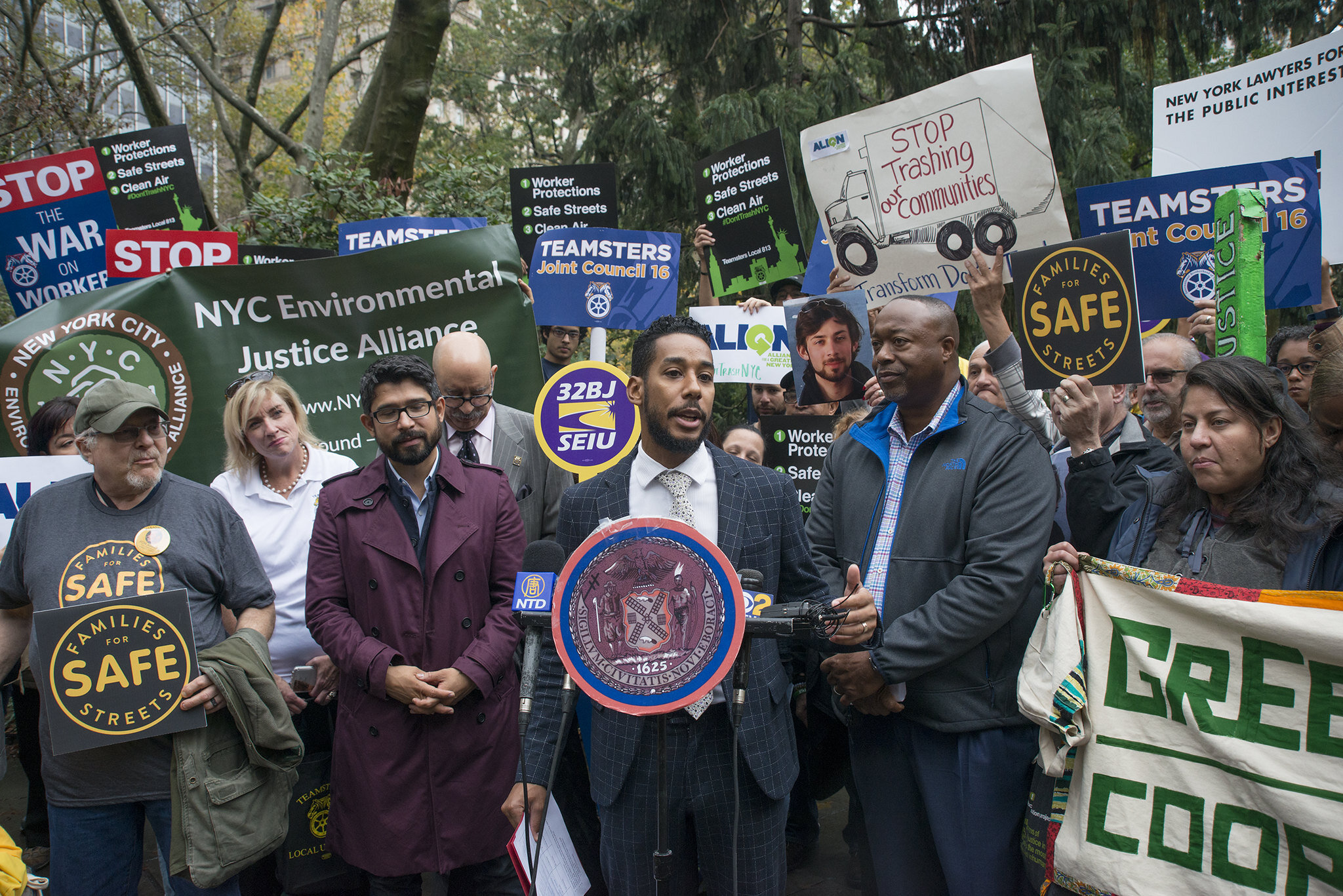City Council votes to rein in ‘rogue’ commercial waste industry
/Councilmember Antonio Reynoso rallies for his commercial waste zones bill prior to Thursday’s City Council meeting. Photo by City Council/Jeff Reed.
By Victoria Merlino
The City Council voted Wednesday to partition New York City into commercial waste zones, a measure that will regulate the private garbage carting industry, which Southeast Queens residents say clogs their streets and lowers the air quality.
The bill, developed in cooperation with the Department of Sanitation and the City Council, puts restrictions on the more than 90 largely unregulated companies that cart millions of tons of trash per year from restaurants, corporations and other businesses around the city. The industry is separate from the city-run DSNY, which handles residential garbage.
“Our air will be cleaner. Our streets will be safer,” said Queens and Brooklyn Councilmember Antonio Reynoso, the primary sponsor of the bill during a City Council meeting on Thursday.
Earlier this month, DSNY Commissioner Kathryn Garcia argued that overlapping routes, with some neighborhoods served by over 50 carters, create dangerous conditions and environmental hazards because drivers take unsafe shortcuts to meet demand and exhaust more fumes. The issue is particularly acute in Southeast Queens neighborhoods, where waste transfer stations are located.
“I want it to be successful because the back stop is going to be the department. And I don’t want to take over the private carting industry,” Garcia said at the time.
The bill will create zones where up to three carters at a time can operate, a move the Council says will cut down on the long routes, shortcuts and the increased volume of private sanitation trucks making their way through Southeast Queens, Northern Brooklyn and the South Bronx to waste transfer stations.
Some of Reynoso’s fellow Queens councilmembers applauded his work on the bill as well as its likely impact.
“The fact is the private carting industry is a rogue industry,” said Councilmember Rory Lancman. “How many working people have to die before this city will act?”
“[The bill] speaks to ensuring that your zipcode doesn’t determine whether you have access to clean air,”said Councilmember Donovan Richards, who represents Southeast Queens.
Other councilmembers raised concerns that the bill may have the unintended consequence of creating private sanitation monopolies.
“I have heard from many, many, many small businesses ... that are genuinely concerned about price fixing and monopolies,” said Councilmember Eric Ulrich. He said that the restrictions squeeze small businesses by limiting their options in the zoned areas.
Reynoso, who took six years to get the bill passed, appeared elated at the meeting.
“This bill, first and foremost, is about environmental justice,” he said.




